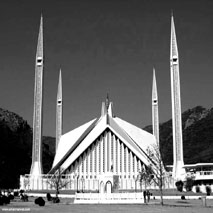Abdul Rasool Syed
ISLAM, like all of its tenets, is also unique as well as appealing in its admonishment to its adherents for adopting cleanliness and beautification in their lives. Cleanliness is part and parcel of Islamic faith and is regarded as half of the faith. It is reported by Ibn Hibban that Holy Prophet (SAWW) said: “cleanse yourself for Islam is cleanliness”. It is also reported by Al-Tabarani that Holy Prophet (SAWW) said: “cleanliness invites towards faith and faith leads its possessor to Garden (paradise)”. The Holy Prophet (SAWW) placed enormous emphasis on keeping body, clothing, houses and streets clean; he laid exclusive stress on cleaning the teeth, hands and hair. This emphasis on cleanliness is not to be wondered at in a religion which makes cleanliness the key to its principle form of worship called” Salat”.
For the Muslims, Salat is not acceptable unless his body, clothing and the place where he performs his Salat are all clean. In addition to this requirement, there are also the obligatory types of cleansing, either of the entire body in the form of Ghusal (total washing), or of those parts of the body which are exposed to dirt, in the form of Wudu (ablution for Salat). The Arabs were the inhabitants of desert and led the nomadic life. Therefore, they were not very much inclined to cleanliness and refinement, and most of them neglected these aspects. The Prophet (SAWW), with his lively instruction and to-the-point admonition, gradually led them out of their uncouth habits and taught them refinement and civil manners. It is reported in the book of Hadith(Al-Muwatta by Imam Malik) that once a man approached the Prophet (SAW) with his hair and beard disheveled. The Prophet (SAWW) made some gestures as if asking the man to comb his hair. He did so, and when he returned the Prophet (SAWW) said to him: “Is not this better than that one should come with disheveled hair, looking like a devil?”
On another occasion the Prophet (SAWW) saw a man with unkempt hair and remarked:”Does he have nothing with which to comb his hair?” (Abu Daoud.) Upon seeing another man with dirty clothes he remarked:”Cannot he find anything with which to wash his clothes?” (Abu Daoud.) It is also reported in Al-Nisai that a man came to the Prophet (SAWW) wearing cheap-looking garments. “Do you have property?” the Prophet (SAWW) inquired of him. “Yes,” the man replied. “What kind of property?” asked the Prophet (SAWW). “Allah has given me all kinds of wealth,” he said. The Prophet (SAWW) then said to him, “Since Allah has given you wealth, let Him see the effects of His favor and bounty upon you.’’
Additionally, beautification and adornment are, undoubtedly, among man’s basic instincts and are innate in the sons of Adam. Thus, it is one of the needs that man seeks to fulfil. The Prophet (SAWW) said: “The one who has in his heart the weight of a mustard seed of pride will not enter Paradise.” A man said, “O Messenger of Allah, every one of us likes that his dress should be fine, and that his shoes should be fine.” The Prophet responded: “Indeed, Allah is beautiful and He loves beauty.”[Muslim]. The Prophet, (SAWW), himself liked applying perfume and had a bottle of perfume that he would use. He would say: “Three things are rendered beloved to me of this worldly life: chaste women and perfume – and the coolness of my eyes lies in performing prayer.” [ MasnadAhmad bin Hanmbal] Apart from this, the Prophet (SAWW) also had a Kohl (antimony) container for his eyes. He used to oil his head and beard and comb them. He also used to have certain clothes for meeting prominent persons and the chiefs of the tribes. This is also required under Sharee‘ah within the limits that Allah has set. Allah the Almighty says (what means): {And it is He who subjected the sea for you to eat from it tender meat and to extract from it ornaments which you wear. And you see the ships plowing through it, and [He Subjected it] that you may seek of His bounty; and perhaps you will be grateful.} [Quran 16:14]
Moreover, the Prophet (SAWW) while advising to the people to inculcate cleanliness and beautification in their daily life, said: “Five acts are from Fitrah [natural disposition]: circumcision, shaving the pubic hair, clipping the nails, plucking the hair under the armpits and cutting the moustache short.”[Muslim] The Prophet (SAWW) forbade the traveller who returns at night from surprising his wife, so as not to see her in a bad condition. The Prophet (SAWW) said in this regard: “[Do not return] until the woman removes the pubic hair and combs her hair.”[Muslim]. Finally, the Prophet (SAWW) admonished his followers to purify themselves and made this purification a reason for being forgiven by Allah, the Almighty, in some cases. For instance, the Prophet (SAWW) said: “Whoever takes a bath on Friday, purifies himself as much as he can, then uses his [hair] oil or perfumes himself, then proceeds [for the Friday prayer] and does not separate two persons who are sitting together [in the mosque], then prays as much as he can according to what was pre-determined by Allah and remains silent while the Imam delivers the Khutbah, his sins between the present and the past Friday would be forgiven.”[Al-Bukhari]
— The writer, an Advcate, is based in Quetta Balochistan.










